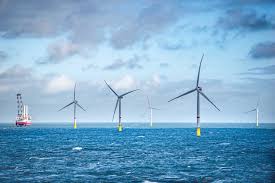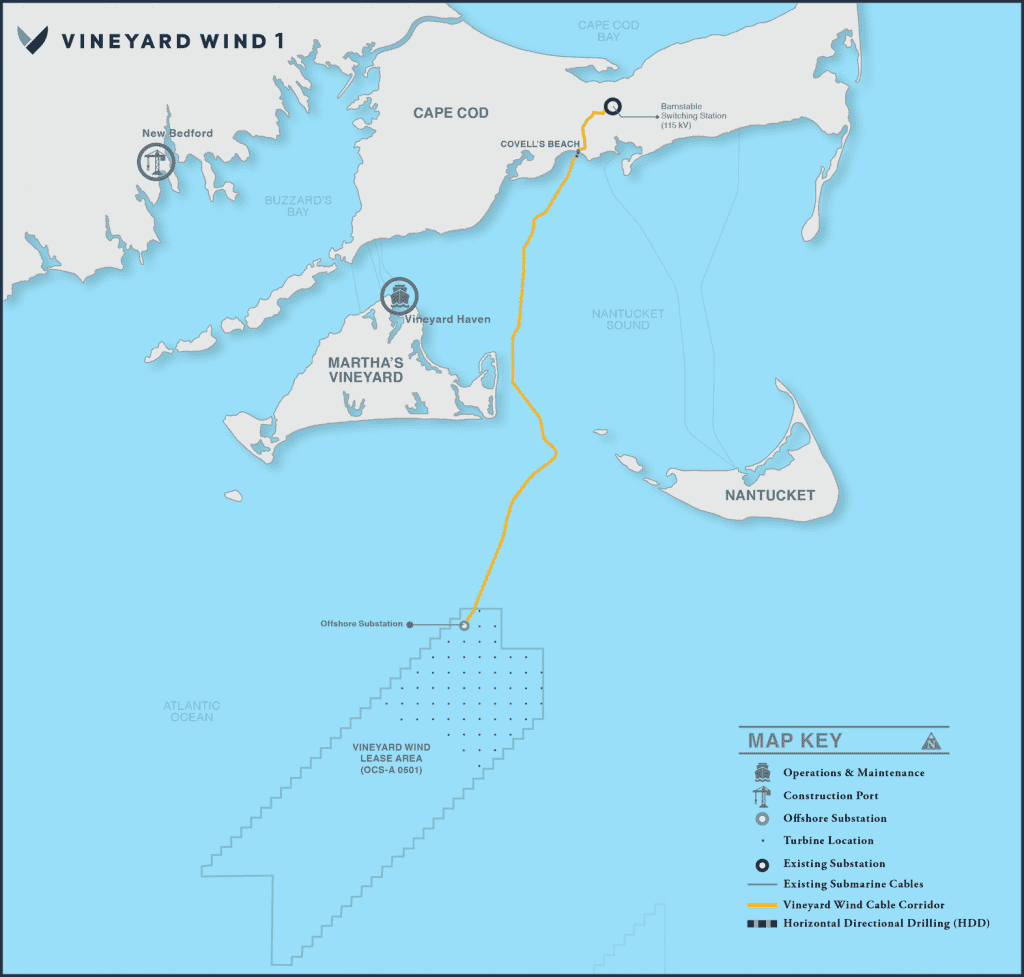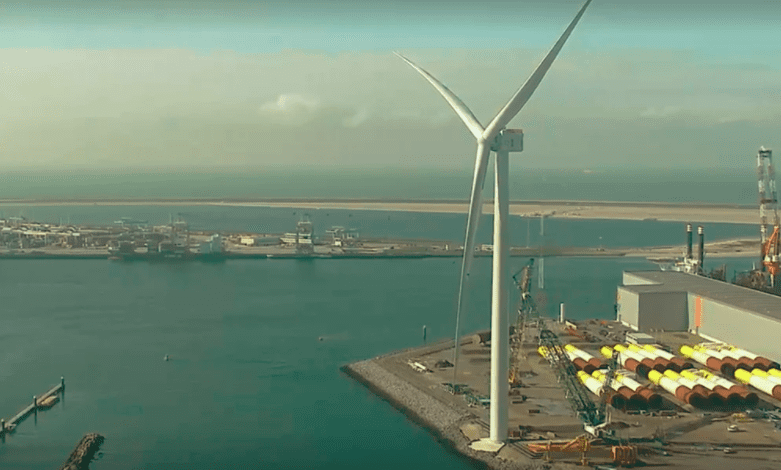The post Offshore Milestone as Feds Back Vineyard Wind Project appeared first on POWER Magazine.

The first large-scale offshore wind farm in the U.S. has received the go-ahead from the federal government, with industry insiders saying the milestone decision is likely to spur more rapid development of the nation’s offshore wind projects.
The Vineyard Wind installation, an 800-MW project that will use GE’s Haliade-X turbines, on May 11 received the Record of Decision (ROD) from the U.S. Dept. of the Interior’s Bureau of Ocean Energy Management (BOEM). The ROD is the last major step in the federal review process for Vineyard Wind, a joint venture of Avangrid Renewables, a subsidiary of AVANGRID, and Copenhagen Infrastructure Partners (CIP).
“Today’s Record of Decision is not about the start of a single project, but the launch of a new industry,” said Vineyard Wind CEO Lars T. Pedersen in a statement. “Receiving this final major federal approval means the jobs, economic benefits and clean energy revolution associated with the Vineyard Wind 1 project can finally come to fruition.”
The project has gone through a four-year public review process. The Construction and Operations Plan (COP) for the installation was reviewed by more than two dozen federal, state, and local agencies over the course of more than three-and-a-half years. The project is sited about 15 miles off the coast of Martha’s Vineyard in Massachusetts.
‘Historic Day’
“This is a historic day for clean energy and for our country that has been over a decade in the making,” said Heather Zichal, CEO of the American Clean Power Association, in an email to POWER. “Today we launch a brand-new source of home-grown energy for Americans. Vineyard Wind is at last cleared to deliver clean power to Massachusetts and jobs and investments for the region. The Biden-Harris administration, including the many talented career staff at the Bureau of Ocean Energy Management and other federal agencies who reviewed this project, deserve great credit for their years of work to enable this clean energy resource to finally come to America’s shores. Now is the time to push forward on offshore wind, catch up to global competitors, and decarbonize our electric grid, so that the U.S. can deliver economic and environmental benefits to our citizens and combat climate change.”

The installation will include 62 Haliade-X wind turbines, each with a 13-MW capacity. The project originally was designed to use 108, 9.5-MW turbines from MHI Vestas Offshore Wind. The project’s designers in December 2020 withdrew their application for federal approval, saying more time was needed for a technical review due to the change in turbines. Industry insiders at the time said the withdrawal likely also was made to ensure the project’s blessing from the Biden administration, which was seen as more favorable to offshore wind than the outgoing Trump administration.
For more information about the U.S. offshore wind industry, read “Offshore Wind Finding Direction in U.S.” in the May 2020 issue of POWER.
The project’s turbine layout, which features consistent spacing of one nautical mile between turbines, in an east-west direction, was endorsed by the United States Coast Guard for transit, fishing and navigational safety. Concerns from commercial fisherman about the impact of the wind farm on their industry were among the reasons cited by government officials as they called for an extended environmental review of the project. A final federal decision on the project originally had been expected in August 2019.

The project’s developers late last year said they expected to reach financial close on Vineyard Wind in the second half of this year, with commercial operation expected to begin in 2023. The developers reached a transmission agreement with ISO-New England, the regional grid operator, in October.
The first and thus far only commercially operating U.S. offshore wind farm is Ørsted’s 30-MW Block Island installation, which is located offshore Rhode Island.
Joel Johnston, an attorney at Hall Estill who specializes in environmental and regulatory issues and large infrastructure projects, told POWER, “The final approval of the Vineyard Wind project is almost certain to be the first of many utility-scale wind projects over the next few years, especially in light of the Biden administration’s focus on expanding renewable energy, and its decarbonization efforts. Offshore wind has long been seen as a game-changer for the wind industry in many ways, perhaps most notably because these projects can be developed fairly close to many of the very biggest U.S. metropolitan areas, including those major Midwest cities near the Great Lakes, where wind generation is often more than sufficient for electrical generation.”
Johnston continued: “While there is no doubt that expected and unforeseen issues will need to be worked out as these projects come forward and move into development, this project is the clearest signal yet that the Biden administration views offshore wind as a big part of the U.S.’s energy generation moving forward.”
‘Long Road’
“It’s been a long road to get to this point, but ultimately, we are reaching the end of this process with the strongest possible project. I want to thank the Biden administration, secretaries Haaland and Raimondo, and BOEM for their efforts in finalizing the review of this project,” said Pedersen, acknowledging Interior Secretary Deb Haaland and Commerce Secretary Gina Raimondo. “I also want to thank Governor [Charlie] Baker, the Massachusetts federal delegation and State Legislature for their steadfast commitment to seeing this endeavor through to today. And of course, I want to extend my sincerest appreciation to all our supporters and stakeholders for all of their work, input and dedication. We could not have reached this milestone without you.”

“A clean energy future is within our grasp in the United States,” said Haaland, in comments shared with POWER. “The approval of this project is an important step toward advancing the administration’s goals to create good-paying union jobs while combatting climate change and powering our nation. Today is one of many actions we are determined to take to open the doors of economic opportunity to more Americans.”
“Today’s offshore wind project announcement demonstrates that we can fight the climate crisis, while creating high-paying jobs and strengthening our competitiveness at home and abroad,” said Raimondo in an emailed statement to POWER. “This project is an example of the investments we need to achieve the Biden-Harris administration’s ambitious climate goals, and I’m proud to be part of the team leading the charge on offshore wind.”
Environmental Review, Mitigation Measures
The project’s extensive environmental review included direct engagement with neighboring communities, environmental organizations and advocates, fisheries organizations, and governmental and tribal entities. Vineyard Wind has incorporated several mitigation measures, including protections for the North Atlantic Right Whale (NARW), including comprehensive monitoring protocols to ensure that construction doesn’t take place when NARWs are near the lease area. The project will utilize acoustic monitoring technology throughout construction, including in transit corridors. and will employ trained protective species observers to spot NARW visually during transits and foundation installation.
“We are very excited and proud to be part of the birth of an incredibly important new industry. U.S. offshore wind is a key part of America’s clean energy future, and Vineyard Wind 1 is a major step forward to the clean and connected future we envision and work toward every day,” said AVANGRID CEO Dennis V. Arriola in a statement. “We appreciate the thorough review by BOEM as well as the considerable input from stakeholders. The broad engagement from many parties throughout this process has improved the project and positioned both Vineyard Wind 1 and the broader offshore wind industry for long-term success.”
The project developers have said they are committed to investing “millions of dollars to develop and deploy innovative technologies and undertake scientific research to further safeguard marine mammals,” along with “deployment of industry-leading technology to dampen construction noise during installation in order to protect the NARW and all marine species.”
Investments in Fisheries
The project also is making investments in fisheries, and in mitigation funding. It has agreements with the states of Massachusetts and Rhode Island to provide funds to compensate fishermen for potential loss of revenue, and gear and to enhance their ability to fish in and around the lease area. It also is committed to funding pre- and post-construction survey studies with both the University of Massachusetts Dartmouth School for Marine Science and Technology, and the Massachusetts Lobstermen’s Association, to measure any impacts of the wind farm on the marine environment.
“Massachusetts should be proud that this decision launches the nation’s first commercial-scale offshore wind project here on the Commonwealth’s shores,” said Gov. Baker in a statement. “This groundbreaking project will produce affordable, renewable energy, create jobs and prove Massachusetts developed a successful model for developing offshore wind energy. We appreciate the federal government’s partnership to grant this approval and look forward to working with Vineyard Wind to create thousands of jobs and set the Commonwealth on a path to achieve net-zero emissions.”
Liz Burdock, president and CEO of the Business Network for Offshore Wind, told POWER, “Today, Vineyard Wind received a greenlight from the federal government to move forward with construction. This approval should signal ‘go’ to all the supply chain companies that were waiting to see if the industry would move to commercial-scale construction. Now is the time to get involved in this next great American industry and become part of the most exciting energy sector this country has seen in 50 years. All indicators point to the federal government continuing to move other projects forward through the permitting process, taking into account the unique characteristics of each Wind Energy Area. Consistent approval of these pending offshore wind projects will help catapult the U.S. as a leader in the offshore wind market and create thousands of well-paying jobs.”
Cultural Protections
The project also is incorporating cultural and historical protections. It will use an Aircraft Detection Lighting System, or ALDS, to ensure that nighttime lights will only operate a few hours a year when aircraft are present. The turbines will be painted to reduce visual impacts to historical properties. In addition, funds will be allocated to conduct ethnographic studies for local Native American tribes, that will serve as the basis for submissions to the National Register of Historic Places to allow for greater recognition of tribal heritage sites.
“We are very proud to have been part of developing this landmark project,” said Christian T. Skakkebæk, a senior partner and co-founder of CIP, in an email to POWER. “Vineyard Wind 1 is slated to become one of the world’s largest offshore wind projects, creating significant investments and good paying jobs in the U.S. For many years we have been actively engaged in the development of the U.S. offshore wind market, and we are confident that Vineyard Wind will pave the way for a successful and growing wind industry in the country. This market will play an important role for CIP’s renewable investments for years to come, and we look forward to being an integral part in the transition to green energy in the U.S.”
—Darrell Proctor is associate editor for POWER (@POWERmagazine).
The post Offshore Milestone as Feds Back Vineyard Wind Project appeared first on POWER Magazine.